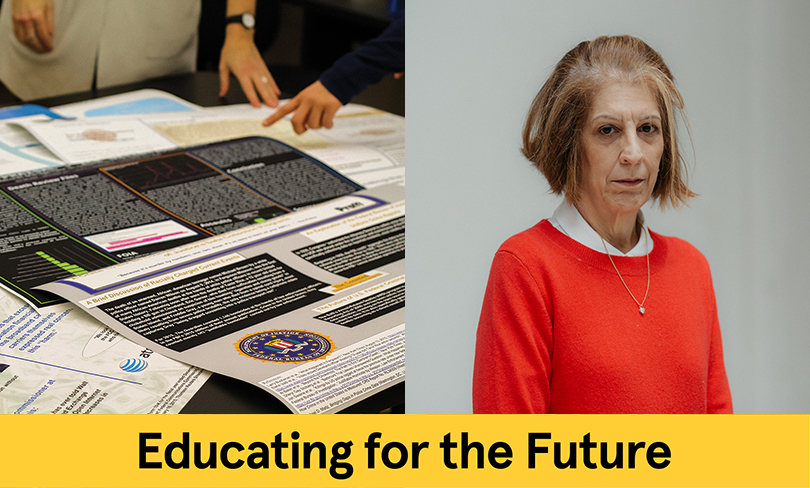Exploring new models for education is one of the pillars of President Frances Bronet’s inauguration and an important area of discussion in academia. We live during a time of dramatic change, where the landscape is quickly shifting. How is Pratt preparing its students for careers and technologies that aren’t here yet?
In this weekly series, “Educating for the Future,” educators across Pratt’s disciplines share their vision as to how they are educating students for a world that is quickly evolving—and reflect on what is needed to prepare the next generation for an environment that is rapidly changing.
This column is by Debbie Rabina, Professor and Program Coordinator, MS in Library and Information Science Program in Pratt’s School of Information.
Information is everywhere. In trails left by deer in the forest, in the digital signals transmitted wirelessly. It is embodied in our minds, it is encoded in our records. Information is a product of existing social, political, economic structures that have historically promoted a narrative of privilege. We use and interpret information in ways that are both predictable and idiosyncratic.
Considering the information environment as the expanse of human experience, our curriculum emphasizes strong theoretical foundations based on critical theory and social justice with the goal of empowering people to improve lives and communities through information, knowledge, and culture.
Libraries have long been recognized for their contribution to society as a third space, that is neither home nor work and where we can engage in activities of civil society and civic engagement. We continue that metaphor and encourage our students to think and design library services that are a fourth space, one which migrates the third space to online environments, ones where we can create inclusive and accessible spaces for library users.
Librarians are engaged in building a future where information is open and human: Open in that it is accessible, with no barriers, to all, and human in that it collected, organized, and preserved with highest regard to individuals, societies, and cultures. We provide our students with education and skills that allow them to build an open and human information ecosystem.
Find all of the “Educating for the Future” features and learn more about how Pratt’s educators from across the Institute are addressing what the future of education will bring to their field.
